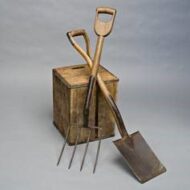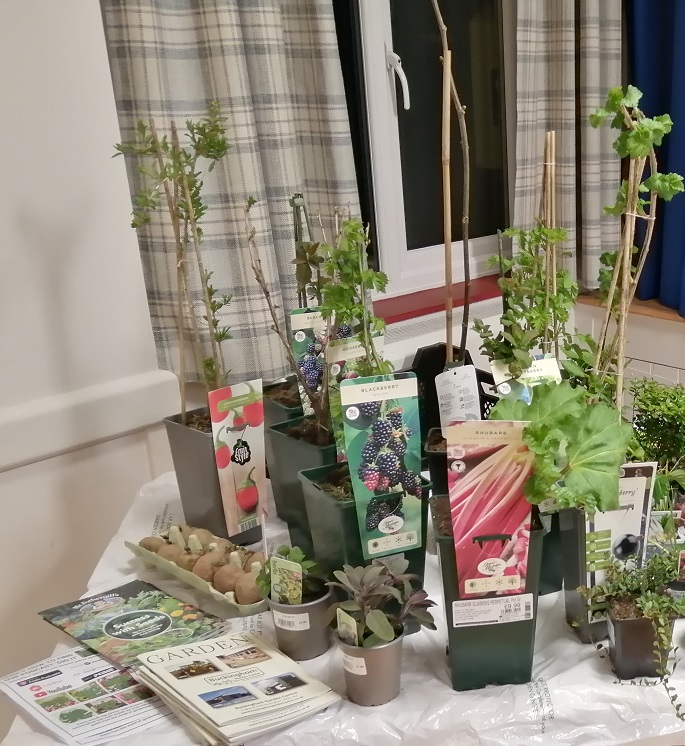
Our March evening talk was by Chris Day of Buckingham Nurseries and Garden Centre. Chris has given talks to MUWAGA before, and he is a knowledgeable and entertaining speaker. This time he presented a guide to growing fruit and vegetables with an emphasis on where space is limited and time is precious.
Chris opened his talk with a reminder of the old BBC sitcom “The Good Life” and its arrival during the serious economic pressures of the mid-1970s, and its popularisation of the idea of self-sufficiency. In the case of “The Good Life” this was taken to comic extremes, but the issue of “growing your own” became a mainstream notion. We have had times of economic fluctuations since those days, and it seems we are back again to the beginnings of familiar territory of financial pressures and inflation concerns. Certainly then, the time is right to increase our skills in growing our own and to encourage others to do the same.
Also of course in these times of difficulty the benefits of growing our own for mental wellbeing can’t be overestimated . That message is clear, given that over 100,000 people are now on waiting lists for allotment plots nationwide. Perhaps the time is right to revitalise the now defunct Landshare scheme initiated by food campaigner Hugh Fearnley-Whittingstall, where time-poor individuals with large gardens could share them with people ready and able to make full use of them.
Chris’s tips included the advice not to waste space with unnecessary crops. Always best also to grow things that we are used to eating and not overly cheap to buy in the shops, so we have for example beans courgettes, beet, onions and salad crops.
He gave his tips on soil improvement, controlling weeds and pests, as well as advocating where possible the use of raised beds for easy maintenance, and to keep pests at bay with the use, for example, of copper tape to deter slugs. We were reminded of the debate around the use of peat-based composts, and how this is being phased out by legislation which penalises horticulturalists, and which requires some considered thinking over the use of alternatives.
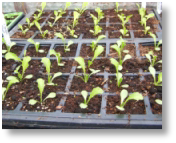
Discussing the advantages or otherwise of using plugs rather than seeds, the watchwords are always “continuity” and “space”. Where space is limited for growing on from seeds, plugs have an advantage.
Also plugs in the greenhouse or in frames allow for a regular supply of seedlings for regular successional planting through the season. A pinch of lettuce seeds every couple of weeks from March, for example, ensures a regular summer supply of salad leaves throughout the season.
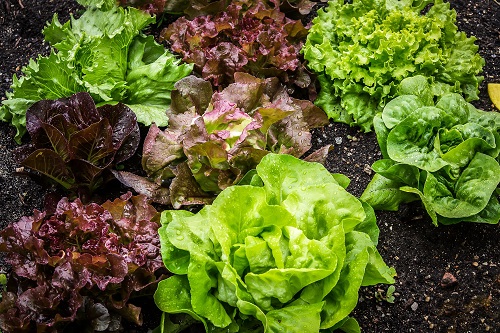
An interesting space-saving idea is the use of mixed-bed planting. In flower-beds it can be attractive to include varieties of plants, for example Lollo Rossa, a red lettuce which can add a colourful complement to those flower borders.
Chris gave plenty of tips on the seasonal growing of potatoes, beans, courgettes, micro-greens and a host of other popular vegetables. His discussion on tomatoes included mention of new “grafted-in” types which have become available via garden centres, having been developed by commercial growers for the supermarket.
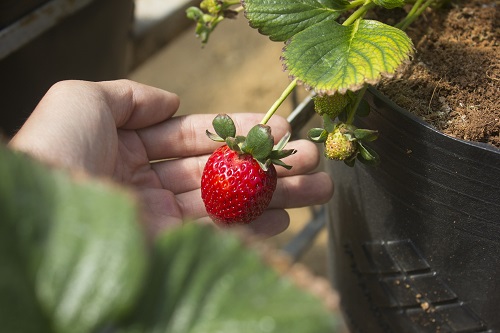
Fruit-growing also featured, with advice on managing the seasons for raspberry-growing, a fruit actually it seems, more popular than strawberries.
These two headed up a list which included blackberries, gooseberries as potentially easy to grow, but some warning about the difficulties of looking after kiwi-fruit and goji berries. Some welcome advice was also on offer on choosing the right size of neighbour-friendly apple and pear trees, and also the idea of using fruit bushes as a barrier or screen to divide growing areas.
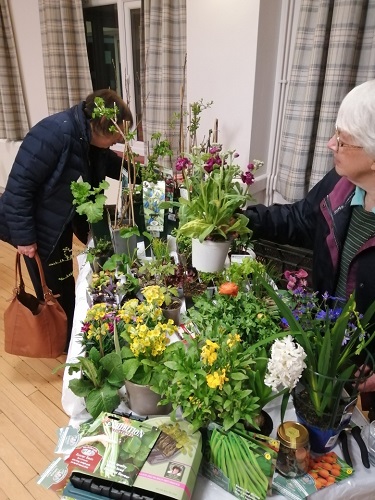
We had an opportunity for questions, and to buy from a fine range of plants which Chris had provided.


